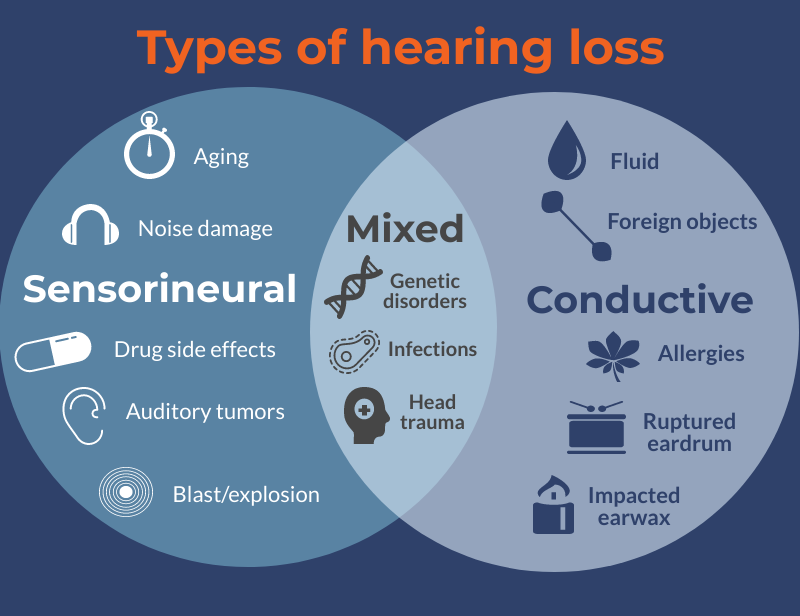|
www.HealthyHearing.com |
Does Medicare cover cochlear implants? What about bone-anchored hearing aids?New rules allow more beneficiaries to access hearing implants
Contributed by Corey Whelan As people age, hearing loss becomes increasingly common. It can also worsen over time. Most people with hearing loss benefit significantly from hearing aids. But sometimes, hearing aids aren’t enough to provide ample hearing ability. In those instances, hearing implant solutions such as cochlear implants or bone-anchored hearing systems (also referred to as bone-anchored hearing aids or BAHA), may help. Medicare covers hearing implant solutions for recipients who meet specific eligibility criteria. Some of those requirements recently changed, making it easier to get cochlear implants than it was before. If you were turned down by Medicare for cochlear implant coverage in the past, you may now be able to get them. We’ll explain what’s changed in this article. We’ll also discuss costs you can expect, and the types of hearing loss these devices are designed to correct.
What are cochlear implants and who benefits from using them?Cochlear implants are electronic devices that contain an external, visible component and an internal component that is surgically implanted into the cochlea. Cochlear implants are not amplification devices. They are also not a cure for hearing loss. They work by providing representations of environmental sounds and speech to people with profound deafness, or moderate to profound sensorineural hearing loss. Sensorineural hearing loss is caused by damage within the inner ear, or in the nerve pathways that connect your inner ear to your brain. Cochlear implants eliminate the need for sound to pass through these damaged areas by stimulating the auditory nerve directly. In that way, they create a “sense of sound” for those who use them. What about bone-anchored hearing aids?Bone-anchored hearing systems are available as surgical and non-surgical options. They’re designed to correct conductive hearing loss, mixed hearing loss, and single-sided deafness. Conductive hearing loss is often caused by structural problems or obstructions in the outer or middle ear. Trauma or damage to the ear can also cause conductive hearing loss. Mixed hearing loss is a combination of conductive and sensorineural hearing loss. If you have conductive hearing loss, external sounds are unable to reach your middle ear. Bone-anchored hearing aids enable external sound to bypass the outer and middle ear by vibrating the bones of the skull. This transmits sound waves directly into the inner ear. Bone-anchored hearing aids may contain a surgically-implanted component which communicates with an external processing device. Or, they may be completely external and worn on a soft band, like a headband. In some instances, bone-anchored hearing aids may be attached directly to the skin with adhesive. 
while bone-anchored hearing devices are used for conductive hearing loss. How the coverage worksIf you have Original Medicare (Part A and Part B), you probably know that hearing aids aren’t covered by your plan. Cochlear implants and surgically-implanted bone-anchored hearing systems are classified by Medicare as prosthetics, not as hearing aids. For that reason, they’re covered for eligible adults under Medicare Part B. Go deeper: Medicare coverage and hearing aids “As far as bone conduction devices are concerned, if the patient is a candidate for the implantable bone conduction device based on the FDA criteria for the implant being considered, Medicare patients can be covered for this procedure. Medicare will not, however, cover non-implanted bone conduction hearing aids, such as those worn on a soft band,” clarifies audiologist Dr. Ruth Reisman, AuD MBA CCC-A. Medicare Advantage (Part C) plans cover at least as much, and often more, than Original Medicare does. If you have a Part C plan, you will be covered for cochlear implants and bone-anchored hearing systems if you meet eligibility requirements. Rule changes for cochlear implant coverage increases access
Medicare only covers medically necessary services and equipment. The eligibility criterion for cochlear implants was expanded on Sept. 22, 2022, enabling more people to get them. Medicare beneficiaries are now eligible if they score 60% or lower on a spoken sentence-comprehension test. In simplified terms, that means that if a person with hearing loss listens to 10 sentences, only about six of the 10 sentences are understandable due to their hearing loss—even with hearing aids. Put another way, they're missing out on about 40% of a conversation. "If you can just think for a minute how hard it would be for a person to miss out on 40% of words and sentences, especially if they can’t see your face. This group of older adults wasn’t able to use the telephone. They struggled in family situations and at work,” explains Donna Sorkin, Executive Director of the American Cochlear Implant Alliance (ACIA). Her organization fought hard for the Medicare expansion for cochlear implants, and was pivotal to its implementation. "Many people who are now eligible were deaf or severely hard of hearing for 10 years while using hearing aids,” Sorkin said. The new rules now mean beneficiaries with hearing loss can get the best treatment available. Requirements for Medicare beneficiaries seeking cochlear implantsThe Centers for Medicare & Medicaid Services (CMS) list these requirements for cochlear implants:
Out-of-pocket costs to expectIf you have Original Medicare, 80% of the total, Medicare-approved costs will be covered. This includes the device, implantation surgery, and rehabilitation. According to audiologists polled by Ms. Sorkin, the average out-of-pocket co-pay for people with Original Medicare and no supplemental plan is $1,800 for cochlear implants. If you do have secondary insurance, such as a Medicare Supplement Plan (Medigap), your out-of-pocket costs (20%) will be covered by your plan. Your Part B deductible will also need to be met. In 2023, the Part B deductible is $226, before Medicare starts to pay. If you have a Medicare Advantage plan, your out-of-pocket cost structure will be determined by multiple factors, such as your copay and deductible. Using in-network providers will significantly reduce your out-of-pocket costs. Check with your plan to see how much you can expect to pay. What about Medicaid?
If you have Medicaid, your coverage for implantable hearing devices will depend largely on what state you live in. The Hearing Loss Association of America maintains a page with the latest details on which state Medicaid programs cover for hearing care and we have more on using Medicaid for hearing aids. Audiologist or ENT doctor can help advise youIs you’re struggling with hearing loss, a cochlear implant or bone-anchored hearing system may enable you to live a fuller life. Sure, you may have gotten used to hearing loss, and feel like you’re doing A-OK, just as you are. And, that may be true. However, exploring your options may open up your world in ways you’ve forgotten about. If hearing aids aren’t working for you the way they used to, talk to a hearing professional, such as an audiologist or ear, nose, and throat doctor (ENT). Our hearing clinic directory lists many such professionals near you. Call ahead to make sure they are familiar with cochlear implants. In many instances, an implanted device may be just the thing for restoring sound, conversation, and social connection to your life. Things you may be missing, and certainly deserve. Corey WhelanCorey Whelan is a freelance health writer and patient advocate based in New York. She specializes in medical content about reproductive health, cancer, hearing health, and menopause. Whelan lives with two fascinating people who happen to be her children and two extremely silly rescue dogs. |
Featured clinics near me
Earzlink Hearing Care - Reynoldsburg
7668 Slate Ridge Blvd
Reynoldsburg, OH 43068

Find a clinic
We have more hearing clinic reviews than any other site!


